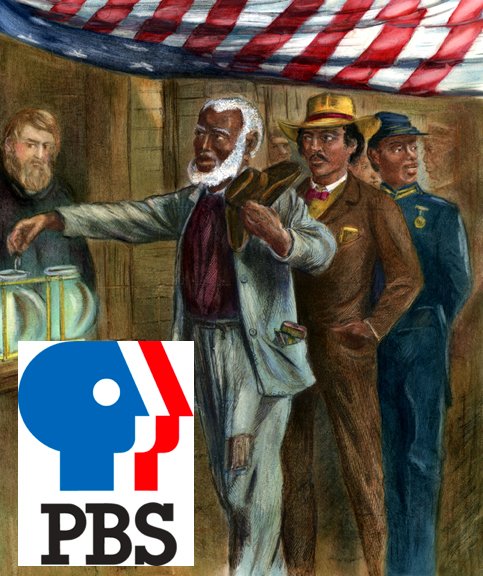xoxodede
Superstar

Today at the Television Critics Association Press Tour, PBS announced RECONSTRUCTION: AMERICA AFTER THE CIVIL WAR (w.t.), a new four-hour documentary executive produced and hosted by Henry Louis Gates, Jr., will premiere next spring on PBS stations nationwide. Professor Gates, the Alphonse Fletcher University Professor at Harvard University and director of the Hutchins Center for African and African American Research, will present the definitive history of one of the least understood chapters in American history - the transformative years following the American Civil War when the nation struggled to rebuild itself in the face of profound loss, massive destruction and revolutionary social change.
RECONSTRUCTION: AMERICA AFTER THE CIVIL WAR (w.t.) will take a broad view of the Reconstruction era and its aftermath, beginning with the hopeful moment of war's end and emancipation in 1865 and carrying through to 1915, when the nation was fully entrenched in Jim Crow segregation. In the aftermath of the Civil War, the nation was devastated by death and deconstruction. Members of the U.S. Congress endeavored to reunite North and South while granting citizenship rights to newly freed African Americans, in a plan started by President Abraham Lincoln prior to his assassination. Millions of former slaves and free black people sought out their rightful place as equal citizens under the law. The dream of an interracial democracy was brief, and the broken promises of the Reconstruction era haunt the country to this day. Though tragically short-lived, this bold democratic experiment was, in the words of W. E. B. Du Bois, a "brief moment in the sun" for African Americans, when they could advance and achieve education, exercise their right to vote, and run for and win public office.
"Reconstruction is one of the most important and consequential chapters in American history," said Gates. "It is also among the most overlooked, misunderstood and misrepresented. Our film will tell the real story of Reconstruction, honoring the struggle of the African Americans who fought their way out of slavery and challenged the nation to live up to the founding ideals of democracy, freedom and equality. But we will also tell the tragic story of the sustained and often violent pushback against Reconstruction's determination to secure equal rights for black people, and the subsequent RISE of white supremacy leading to the implementation of Jim Crow segregation. More than one hundred and fifty years later, this struggle continues."
The first half of the series will center on the pivotal decade following the Civil War rebellion, charting black progress and highlighting the accomplishments of the many political leaders who emerged to usher their communities into this new era of freedom. The series' second half will look BEYOND that hopeful decade, when the arc of history bent backwards. It became increasingly clear that many Southern white people were not willing to accept this new social order and that the federal government was not prepared to provide African Americans with consistent or enduring protection of their new rights. While tracing the unraveling of Reconstruction and the RISE of Jim Crow segregation in the closing years of the nineteenth century, the film will look at the myriad ways in which black people continued to acquire land, build institutions, and strengthen communities amidst increasing racial violence and repression. Less than thirty years after black men filled state legislatures, one by one, the Southern states began drastically restricting the vote while drawing a stark color line that DIVIDED white and black America.
The series will also explore the flowering of African American art, music, literature and culture as tools of resistance in the struggle against Jim Crow racism and the surge of political activism that marked the launch of such iconic civil rights organizations as the National Association of Colored Women, the Niagara Movement, and the NAACP, all at a time when black political power had been blunted and the dream of an interracial democracy seemed impossibly out of reach.
For those who don't know about Reconstruction: